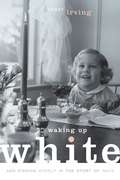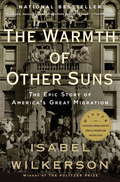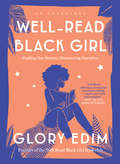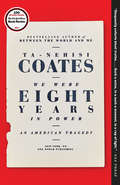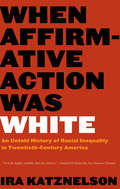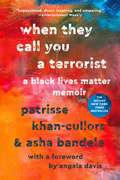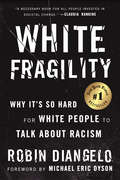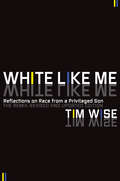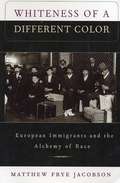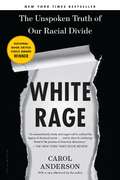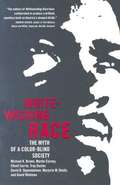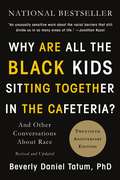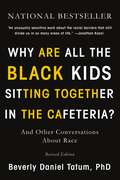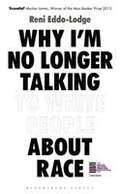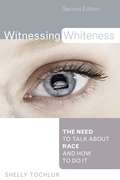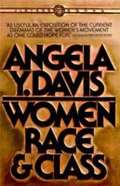Special Collections
Anti-Racism 101
- Table View
- List View
Waking Up White, and Finding Myself in the Story of Race
by Debby IrvingWhite privilege. What is it, what does it mean? For twenty-five years, Debby Irving sensed inexplicable racial tensions in her personal and professional relationships. As a colleague and neighbor, she worried about offending people she dearly wanted to befriend. As an arts administrator, she didn't understand why her diversity efforts lacked traction. As a teacher, she found her best efforts to reach out to students and families of color left her wondering what she was missing. Then, in 2009, one "aha!" moment launched an adventure of discovery and insight that drastically shifted her worldview and upended her life plan. In Waking Up White, Irving tells her often cringe-worthy story with such openness that readers will turn every page rooting for her--and ultimately--for all of us.
The Warmth of Other Suns
by Isabel WilkersonIn this epic, beautifully written masterwork, Pulitzer Prize-winning author Isabel Wilkerson chronicles one of the great untold stories of American history: the decades-long migration of black citizens who fled the South for northern and western cities, in search of a better life.
From 1915 to 1970, this exodus of almost six million people changed the face of America. Wilkerson compares this epic migration to the migrations of other peoples in history. She interviewed more than a thousand people, and gained access to new data and official records, to write this definitive and vividly dramatic account of how these American journeys unfolded, altering our cities, our country, and ourselves.
With stunning historical detail, Wilkerson tells this story through the lives of three unique individuals: Ida Mae Gladney, who in 1937 left sharecropping and prejudice in Mississippi for Chicago, where she achieved quiet blue-collar success and, in old age, voted for Barack Obama when he ran for an Illinois Senate seat; sharp and quick-tempered George Starling, who in 1945 fled Florida for Harlem, where he endangered his job fighting for civil rights, saw his family fall, and finally found peace in God; and Robert Foster, who left Louisiana in 1953 to pursue a medical career, the personal physician to Ray Charles as part of a glitteringly successful medical career, which allowed him to purchase a grand home where he often threw exuberant parties.
Wilkerson brilliantly captures their first treacherous and exhausting cross-country trips by car and train and their new lives in colonies that grew into ghettos, as well as how they changed these cities with southern food, faith, and culture and improved them with discipline, drive, and hard work. Both a riveting microcosm and a major assessment, The Warmth of Other Suns is a bold, remarkable, and riveting work, a superb account of an "unrecognized immigration" within our own land. Through the breadth of its narrative, the beauty of the writing, the depth of its research, and the fullness of the people and lives portrayed herein, this book is destined to become a classic.
A New York Times Bestseller
Well-Read Black Girl
by Glory EdimAn inspiring collection of essays by black women writers, curated by the founder of the popular book club Well-Read Black Girl, on the importance of recognizing ourselves in literature. “Yes, Well-Read Black Girl is as good as it sounds. . . . [Glory Edim] gathers an all-star cast of contributors—among them Lynn Nottage, Jesmyn Ward, and Gabourey Sidibe.”—O: The Oprah Magazine (“10 Books to be Thankful for This November”) Remember that moment when you first encountered a character who seemed to be written just for you? That feeling of belonging remains with readers the rest of their lives—but not everyone regularly sees themselves in the pages of a book. In this timely anthology, Glory Edim brings together original essays by some of our best black women writers to shine a light on how important it is that we all—regardless of gender, race, religion, or ability—have the opportunity to find ourselves in literature. Contributors include Jesmyn Ward (Sing, Unburied, Sing), Lynn Nottage (Sweat), Jacqueline Woodson (Another Brooklyn), Gabourey Sidibe (This Is Just My Face), Morgan Jerkins (This Will Be My Undoing), Tayari Jones (An American Marriage), Rebecca Walker (Black, White and Jewish), and Barbara Smith (Home Girls: A Black Feminist Anthology) Whether it’s learning about the complexities of femalehood from Zora Neale Hurston and Toni Morrison, finding a new type of love in The Color Purple, or using mythology to craft an alternative black future, the subjects of each essay remind us why we turn to books in times of both struggle and relaxation. As she has done with her book club–turned–online community Well-Read Black Girl, in this anthology Glory Edim has created a space in which black women’s writing and knowledge and life experiences are lifted up, to be shared with all readers who value the power of a story to help us understand the world and ourselves.Praise for Well-Read Black Girl“Each essay can be read as a dispatch from the vast and wonderfully complex location that is black girlhood and womanhood. . . . They present literary encounters that may at times seem private and ordinary—hours spent in the children’s section of a public library or in a college classroom—but are no less monumental in their impact.”—The Washington Post “A wonderful collection of essays.”—Essence
We Were Eight Years in Power
by Ta-Nehisi CoatesIn these “urgently relevant essays,”* the National Book Award–winning author of Between the World and Me “reflects on race, Barack Obama’s presidency and its jarring aftermath”*—including the election of Donald Trump.
“We were eight years in power” was the lament of Reconstruction-era black politicians as the American experiment in multiracial democracy ended with the return of white supremacist rule in the South. In this sweeping collection of new and selected essays, Ta-Nehisi Coates explores the tragic echoes of that history in our own time: the unprecedented election of a black president followed by a vicious backlash that fueled the election of the man Coates argues is America’s “first white president.”
But the story of these present-day eight years is not just about presidential politics. This book also examines the new voices, ideas, and movements for justice that emerged over this period—and the effects of the persistent, haunting shadow of our nation’s old and unreconciled history. Coates powerfully examines the events of the Obama era from his intimate and revealing perspective—the point of view of a young writer who begins the journey in an unemployment office in Harlem and ends it in the Oval Office, interviewing a president.
We Were Eight Years in Power features Coates’s iconic essays first published in The Atlantic, including “Fear of a Black President,” “The Case for Reparations,” and “The Black Family in the Age of Mass Incarceration,” along with eight fresh essays that revisit each year of the Obama administration through Coates’s own experiences, observations, and intellectual development, capped by a bracingly original assessment of the election that fully illuminated the tragedy of the Obama era. We Were Eight Years in Power is a vital account of modern America, from one of the definitive voices of this historic moment.
*Kirkus Reviews (starred review)
Praise for We Were Eight Years in Power:
“Essential . . . Coates’s probing essays about race, politics, and history became necessary ballast for this nation’s gravity-defying moment.” —The Boston Globe
“Coates’s always sharp commentary is particularly insightful as each day brings a new upset to the cultural and political landscape laid during the term of the nation’s first black president. . . . Coates is a crucial voice in the public discussion of race and equality, and readers will be eager for his take on where we stand now and why.” —Booklist
A New York Times Bestseller
When Affirmative Action Was White
by Ira KatznelsonA groundbreaking work that exposes the twisted origins of affirmative action. In this "penetrating new analysis" (New York Times Book Review) Ira Katznelson fundamentally recasts our understanding of twentieth-century American history and demonstrates that all the key programs passed during the New Deal and Fair Deal era of the 1930s and 1940s were created in a deeply discriminatory manner. Through mechanisms designed by Southern Democrats that specifically excluded maids and farm workers, the gap between blacks and whites actually widened despite postwar prosperity. In the words of noted historian Eric Foner, "Katznelson's incisive book should change the terms of debate about affirmative action, and about the last seventy years of American history."
When They Call You a Terrorist
by Patrisse Khan-Cullors and Asha Bandele and Angela DavisTHE INSTANT NEW YORK TIMES BESTSELLER.
Also: New York Times Editor’s Pick, O, Oprah’s Magazine’s “10 Titles to Pick Up Now,” Entertainment Weekly’s “13 Books to Read in January,” Cassius’ “Black Books to Add to Your Reading List,” Vogue’s “The Most Anticipated Books of January 2018,” Paste’s “10 of the Best Books of January 2018,” Bitch Magazine’s “Bitch Reads: 13 Books Feminists Should Read in January,” ELLE’s “19 of the Best Books to Read This Winter.”
"This remarkable book reveals what inspired Patrisse's visionary and courageous activism and forces us to face the consequence of the choices our nation made when we criminalized a generation. This book is a must-read for all of us." - Michelle Alexander, author of The New Jim Crow
A poetic and powerful memoir about what it means to be a Black woman in America―and the co-founding of a movement that demands justice for all in the land of the free.
Raised by a single mother in an impoverished neighborhood in Los Angeles, Patrisse Khan-Cullors experienced firsthand the prejudice and persecution Black Americans endure at the hands of law enforcement. For Patrisse, the most vulnerable people in the country are Black people. Deliberately and ruthlessly targeted by a criminal justice system serving a white privilege agenda, Black people are subjected to unjustifiable racial profiling and police brutality. In 2013, when Trayvon Martin’s killer went free, Patrisse’s outrage led her to co-found Black Lives Matter with Alicia Garza and Opal Tometi.
Condemned as terrorists and as a threat to America, these loving women founded a hashtag that birthed the movement to demand accountability from the authorities who continually turn a blind eye to the injustices inflicted upon people of Black and Brown skin.
Championing human rights in the face of violent racism, Patrisse is a survivor. She transformed her personal pain into political power, giving voice to a people suffering in equality and a movement fueled by her strength and love to tell the country―and the world―that Black Lives Matter.
When They Call You a Terrorist is Patrisse Khan-Cullors and asha bandele’s reflection on humanity. It is an empowering account of survival, strength and resilience and a call to action to change the culture that declares innocent Black life expendable.
Necessary and timely, Patrisse Cullors’ story asks us to remember that protest in the interest of the most vulnerable comes from love. Leaders of the Black Lives Matter movement have been called terrorists, a threat to America. But in truth, they are loving women whose life experiences have led them to seek justice for those victimized by the powerful. In this meaningful, empowering account of survival, strength, and resilience, Patrisse Cullors and asha bandele seek to change the culture that declares innocent black life expendable.
White Fragility
by Michael Eric Dyson and Robin DiAngeloThe New York Times best-selling book exploring the counterproductive reactions white people have when their assumptions about race are challenged, and how these reactions maintain racial inequality.
In this “vital, necessary, and beautiful book” (Michael Eric Dyson), antiracist educator Robin DiAngelo deftly illuminates the phenomenon of white fragility and “allows us to understand racism as a practice not restricted to ‘bad people’ (Claudia Rankine).
Referring to the defensive moves that white people make when challenged racially, white fragility is characterized by emotions such as anger, fear, and guilt, and by behaviors including argumentation and silence.
These behaviors, in turn, function to reinstate white racial equilibrium and prevent any meaningful cross-racial dialogue.
In this in-depth exploration, DiAngelo examines how white fragility develops, how it protects racial inequality, and what we can do to engage more constructively.
A New York Times Bestseller
White Like Me
by Tim WiseWith a new preface and updated chapters, White Like Me is one-part memoir, one-part polemical essay collection. It is a personal examination of the way in which racial privilege shapes the daily lives of white Americans in every realm: employment, education, housing, criminal justice, and elsewhere.Using stories from his own life, Tim Wise demonstrates the ways in which racism not only burdens people of color, but also benefits, in relative terms, those who are "white like him." He discusses how racial privilege can harm whites in the long run and make progressive social change less likely. He explores the ways in which whites can challenge their unjust privileges, and explains in clear and convincing language why it is in the best interest of whites themselves to do so. Using anecdotes instead of stale statistics, Wise weaves a narrative that is at once readable and yet scholarly, analytical and yet accessible.
Whiteness of a Different Color
by Mathew Frye JacobsonThe history of racial classification over time is a second such site: entire races have disappeared from view, from public discussion, and from modern memory.
White Rage
by Carol AndersonFrom the end of the Civil War to our combustible present, an acclaimed historian reframes the conversation about race we must continue to have, chronicling the powerful forces that have long opposed black progress in America.
As Ferguson, Missouri, erupted in August 2014, with media commentators referring to the angry response of African Americans yet again as "black rage," historian Carol Anderson wrote a remarkable op-ed in the Washington Post showing that this was, instead, "white rage" at work. "With so much attention on the flames," she writes, "everyone had ignored the kindling."
Now, in her eloquent and powerfully argued narrative, Anderson makes clear that since 1865 and the passage of the Thirteenth Amendment, every time African Americans have made advances toward full participation in our democracy, white reaction--usually in the courts and legislatures--has fueled a deliberate and relentless rollback of their gains.
The end of the Civil War and Reconstruction was greeted with the Black Codes and Jim Crow.
The Great Migration north was physically opposed in many Southern states, and blacks often found conditions in the North to be no better. The Supreme Court's landmark 1954 Brown v. Board of Education decision was met with the shutting down of public schools throughout the South while taxpayer dollars financed segregated white private schools.
The Civil Rights Act of 1964 and Voting Rights Act of 1965 triggered a coded but powerful response--the so-called Southern Strategy and the War on Drugs that disenfranchised and imprisoned millions of African Americans.
The election of Barack Obama, and the promise it heralded of healing our racial divide, precipitated instead a rash of voter suppression laws in Southern and swing states, while the Supreme Court's decision in Shelby County v. Holder gutted a key provision of the Voting Rights Act.
Carefully linking these and other historical flash points when social progress for African Americans was countered by deliberate and cleverly crafted white opposition, Anderson pulls back the veil that has long covered punitive actions allegedly made in the name of protecting democracy, fiscal responsibility, or protection against fraud.
Compelling and dramatic in the unimpeachable history it relates over a century and a half, White Rage will add an important new dimension to the national conversation about race in America.
A New York Times Bestseller
Whitewashing Race
by Michael K. Brown and Martin Carnoy and Elliott Currie and Troy Duster and David B. OppenheimerWhite Americans, abetted by neo-conservative writers of all hues, generally believe that racial discrimination is a thing of the past and that any racial inequalities that undeniably persist-in wages, family income, access to housing or health care-can be attributed to African Americans cultural and individual failures. If the experience of most black Americans says otherwise, an explanation has been sorely lacking-or obscured by the passions the issue provokes. At long last offering a cool, clear, and informed perspective on the subject, this book brings together a team of highly respected sociologists, political scientists, economists, criminologists, and legal scholars to scrutinize the logic and evidence behind the widely held belief in a color-blind society-and to provide an alternative explanation for continued racial inequality in the United States. While not denying the economic advances of black Americans since the 1960s, "Whitewashing Race "draws on new and compelling research to demonstrate the persistence of racism and the effects of organized racial advantage across many institutions in American society-including the labor market, the welfare state, the criminal justice system, and schools and universities. Looking beyond the stalled debate over current antidiscrimination policies, the authors also put forth a fresh vision for achieving genuine racial equality of opportunity in a post-affirmative action world.
Why Are All the Black Kids Sitting Together in the Cafeteria?
by Beverly TatumWalk into any racially mixed high school and you will see black youth seated together in the cafeteria. Of course, it's not just the black kids sitting together-the white, Latino, Asian Pacific, and, in some regions, American Indian youth are clustered in their own groups, too.
The same phenomenon can be observed in college dining halls, faculty lounges, and corporate cafeterias. What is going on here? Is this self-segregation a problem we should try to fix, or a coping strategy we should support? How can we get past our reluctance to talk about racial issues to even discuss it? And what about all the other questions we and our children have about race?
Beverly Daniel Tatum, a renowned authority on the psychology of racism, asserts that we do not know how to talk about our racial differences: Whites are afraid of using the wrong words and being perceived as "racist" while parents of color are afraid of exposing their children to painful racial realities too soon.
Using real-life examples and the latest research, Tatum presents strong evidence that straight talk about our racial identities-whatever they may be-is essential if we are serious about facilitating communication across racial and ethnic divides. We have waited far too long to begin our conversations about race. This remarkable book, infused with great wisdom and humanity, has already helped hundreds of thousands of readers figure out where to start.
A New York Times Bestseller
Why Are All the Black Kids Sitting Together in the Cafeteria?
by Beverly TatumWalk into any racially mixed high school and you will see black youth seated together in the cafeteria. Of course, it's not just the black kids sitting together-the white, Latino, Asian Pacific, and, in some regions, American Indian youth are clustered in their own groups, too. The same phenomenon can be observed in college dining halls, faculty lounges, and corporate cafeterias. What is going on here? Is this self-segregation a problem we should try to fix, or a coping strategy we should support? How can we get past our reluctance to talk about racial issues to even discuss it? And what about all the other questions we and our children have about race? Beverly Daniel Tatum, a renowned authority on the psychology of racism, asserts that we do not know how to talk about our racial differences: Whites are afraid of using the wrong words and being perceived as "racist" while parents of color are afraid of exposing their children to painful racial realities too soon. Using real-life examples and the latest research, Tatum presents strong evidence that straight talk about our racial identities-whatever they may be-is essential if we are serious about facilitating communication across racial and ethnic divides. We have waited far too long to begin our conversations about race. This remarkable book, infused with great wisdom and humanity, has already helped hundreds of thousands of readers figure out where to start.
Why I'm No Longer Talking To White People About Race
by Reni Eddo-LodgeIn 2014, award-winning journalist Reni Eddo-Lodge wrote about her frustration with the way that discussions of race and racism in Britain were being led by those who weren’t affected by it. She posted a piece on her blog, entitled: "Why I’m No Longer Talking to White People About Race."
Her words hit a nerve. The post went viral and comments flooded in from others desperate to speak up about their own experiences. Galvanized by this clear hunger for open discussion, she decided to dig into the source of these feelings. Exploring issues from eradicated black history to the political purpose of white dominance, whitewashed feminism to the inextricable link between class and race, Reni Eddo-Lodge offers a timely and essential new framework for how to see, acknowledge and counter racism. It is a searing, illuminating, absolutely necessary exploration of what it is to be a person of color in Britain today.
Witnessing Whiteness
by Shelly TochlukWitnessing Whiteness invites readers to consider what it means to be white, describes and critiques strategies used to avoid race issues, and identifies the detrimental effect of avoiding race on cross-race collaborations. The author illustrates how racial discomfort leads white people toward poor relationships with people of color. Questioning the implications our history has for personal lives and social institutions, the book considers political, economic, socio-cultural, and legal histories that shaped the meanings associated with whiteness. Drawing on dialogue with well-known figures within education, race, and multicultural work, the book offers intimate, personal stories of cross-race friendships that address both how a deep understanding of whiteness supports cross-race collaboration and the long-term nature of the work of excising racism from the deep psyche. Concluding chapters offer practical information on building knowledge, skills, capacities, and communities that support anti-racism practices, a hopeful look at our collective future, and a discussion of how to create a culture of witnesses who support allies for social and racial justice.
Women, Race, and Class
by Angela Y. DavisA powerful study of the women's movement in the U.S. from abolitionist days to the present that demonstrates how it has always been hampered by the racist and classist biases of its leaders.
